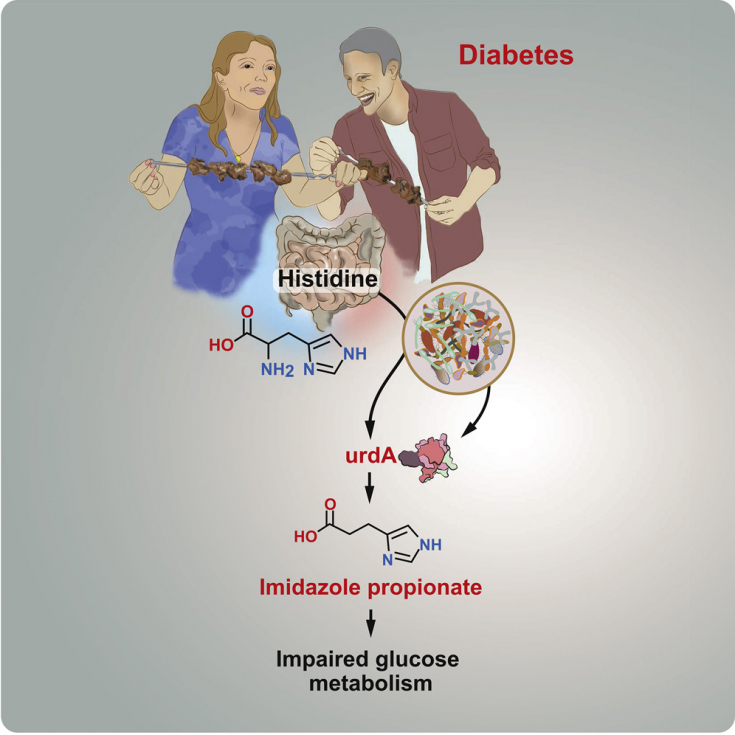In recent years, gut microbiota has been associated with health and several diseases. However, only a few studies have found whether an altered gut microbiota can directly influence the disease.
Recent research indicates that the gut microbiota has the ability to influence how cells respond to insulin and thus contribute to type 2 diabetes. The findings demonstrate an unknown pathological mechanism.
In the article estet-portal.com you can get acquainted in detail with the results of a current study that sheds light on the etiopathogenesis of diabetes mellitus type 2, and opens up new possibilities for creating effective treatment.
Gut microbiota impairs histidine metabolism
Scientists from the Sahlgrena Academy, University of Gothenburg, Sweden, are proving that the gut microbiota of people with diabetes may be associated with impaired metabolism of the amino acid histidine, which comes mainly from the diet.
Watch the most interesting videos on our channel in Youtube
Disturbed metabolism leads to the formation of imidazole propionate, a substance that impairs the ability of cells to respond to insulin.
Reducing the amount of imidazole propionate produced by bacteria could be a new way to treat patients with type 2 diabetes.
Experimental confirmation of the role of the gut microbiota
The latest study involved the analysis of various substances in the blood vessel that travels from the intestines to the liver. The investigators then identified an increased concentration of imidazole propionate in patients with type 2 diabetes.

Using faecal samples, it could also be shown that the microbiota of people with type 2 diabetes produced imidazole propionate when histidine was added. This mechanism has not been found in diabetic patients.
Intestinal bacteria in different people can lead to the formation of completely different substances that have specific effects.
The Gothenburg scientists then set out to investigate the effects of imidazole propionate on sugar metabolism and found that the molecule affects a signaling pathway previously associated with metabolic disease by directly activating a specific p38gamma protein.
The prospect of changing the gut microbiota for a cure
"This substance does not cause all type 2 diabetes, but our working hypothesis is that there are subpopulations of patients who may benefit from changing their diet or changing the gut microbiota to reduce imidazole propionate levels," says Professor of Molecular Biology Fredrik Buckhead.
Intestinal health is the key to beauty and youth
The combination of basic and clinical research paves the way for the identification of bacterial mechanisms, and at the same time, through further research, stratifies patient populations and identifies new, more personalized forms of treatment.
Thank you for staying with estet-portal.com. Read other interesting articles in the "Dermatology" section. You may be interested in The role of intestinal dysbacteriosis in the development of atopic dermatitis
Adapted from Sciencedaily







Add a comment